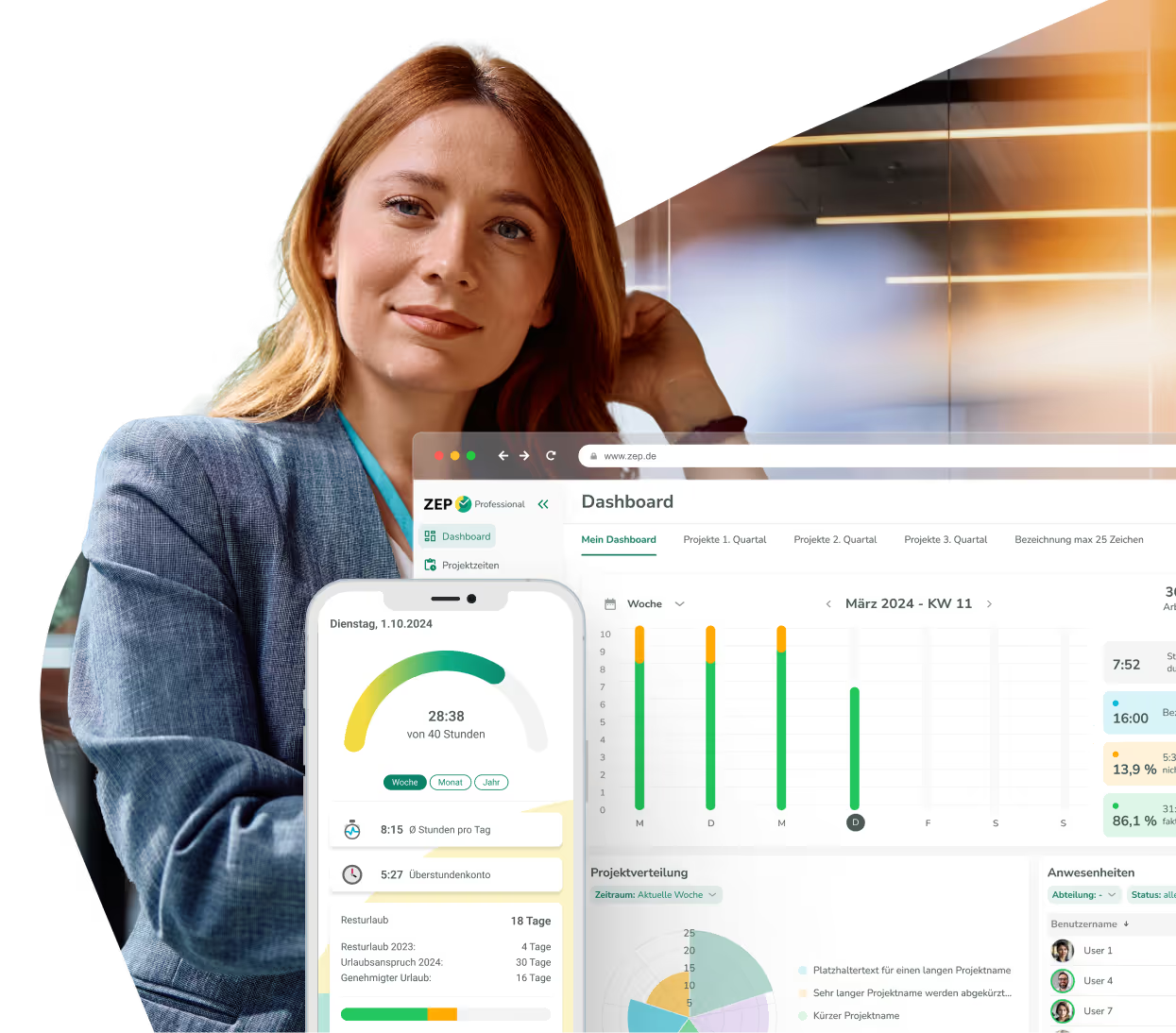
One central platform for your times and projects
ZEP is powerful, user-friendly, and can be tailored to your needs. Whether it’s for time tracking, project time tracking or as a project ERP solution.











More than 2,000 companies rely on ZEP




































From working time tracking up to a project ERP
A central platform for your process automation
Choose the right product line and expand it flexibly and individually with our additional modules.
Integrate ZEP into your setup
We ensure that ZEP is in harmony with the rest of your IT infrastructure.
ZEP interface
Standardised data exchange using SOAP and REST
Personio
Transfer of ZEP time bookings and Personio master data
DATEV invoices & payroll
Synchronization of billing data, document data, payroll and LODAS

More than 2,000 companies already rely on ZEP
The time tracking of choice — from startups to large corporations.




“Ideal employee management support thanks to a 360 degree view of employee availability, daily reports and automated vacation and absence management.”
“Comprehensive solution for recording project and working times. In particular, compliance with legal regulations (minimum rest time, break times, maximum working hours, etc.) can be tracked very well. “
“We have been using ZEP for over 10 years to record working hours (billable, non-billable). This is a great basis for invoicing our customers.”
“ZEP impresses with its intuitive time and project management and offers excellent customer support!”
“Quick project bookings and evaluations. Yet a high degree of flexibility. Good modular design. You can easily adapt the system to your own needs.”
“We use ZEP for precise time recording, vacation management and absenteeism. With ZEP, our employees can also record their working hours while working from home, which enabled us to replace several previously used tools.”
“Ideal employee management support thanks to a 360 degree view of employee availability, daily reports and automated vacation and absence management.”
“Comprehensive solution for recording project and working times. In particular, compliance with legal regulations (minimum rest time, break times, maximum working hours, etc.) can be tracked very well. “
“We have been using ZEP for over 10 years to record working hours (billable, non-billable). This is a great basis for invoicing our customers.”
“ZEP impresses with its intuitive time and project management and offers excellent customer support!”
“Quick project bookings and evaluations. Yet a high degree of flexibility. Good modular design. You can easily adapt the system to your own needs.”
“We use ZEP for precise time recording, vacation management and absenteeism. With ZEP, our employees can also record their working hours while working from home, which enabled us to replace several previously used tools.”
This is important
This is relevant
Current topics and trends relating to time recording, etc.















.avif)

























